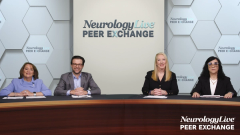
Implementing Biosimilars in Clinical Practice
Amy Perrin Ross, APN, Aliza Ben-Zacharia, PhD, DNP, ANP-BC, and John Kramer, PA-C share strategies for implementing biosimilars in clinical practice.
Episodes in this series

Amy Perrin Ross, MSN, MSCN, APN, CNRN: ….Aliza, what real-world evidence is available on the strategies that are going to help us implement biosimilars successfully?
Aliza Ben-Zacharia, PhD, DNP, RN, ANP-BC, FAAN: …. I think this question is really talking about strategies. How can we make sure that biosimilars are available in a timely manner? One of the strategies that was evidenced by the literature in relation to other disease entities we spoke about was trying to almost expedite the formulary process of these medications once they’re approved by the FDA. I remember working in the past in a huge academic institution. Once medications were approved, a biologic had to go through our pharmacy committee and pharmacy directors. It took time until it became formulary and became available in our medical records or EMR [electronic medical records].
It’s important because the EMR is a tool to show us and demonstrate these medications and the options we have. Once it’s there and the biosimilar, I mean, is there with the biologic, it allows us to choose the options. I don’t think that institution will delete it from our EMR. However, as you said, if third-party payers have different ideas about our prescribing, sometimes we justify, we fight, but sometimes if we feel that the biosimilar had good data, then we can prescribe and improve access to care and medication, as you both mentioned. I think that will be an important strategy to do to expedite that formulary phase.
Another thing that the literature talks about is really looking at and evaluating the trends of biosimilar use in other diseases as compared with biological ones. One of the studies had tremendous tables about trends in the past few years regarding the increase in the use of biosimilars. Clinicians of other diseases, like RA [rheumatoid arthritis], and we talked about IBD [irritable bowel disease], are more comfortable using biosimilars. I think Amy had a good point about real world data. I think as clinicians, we’ll look at that data, we’ll try to look at trends and hopefully, pharmaceutical companies and scientists will help us gather the data and share the data. Because it’s important to look at trends, look at how much we save, and look at patient efficacy and safety and immunogenicity over time.
…. I think it’s [so] important to communicate and educate the community and the huge health care system about biosimilars…. I think clinicians at big institutions, clinicians who have [treated patients with multiple sclerosis (MS)] for many, many years, might be more comfortable with the biologic, and it makes sense because that’s what we know, that’s our experience. I think we have to pass that bridge and really understand biosimilars and know how they work. I mentioned my concern earlier about the lens and out of multiple study, there were 2 studies that showed some less efficacy in a biosimilar. I think we need to learn more and know more about the efficacy and safety and immunogenicity and feel comfortable prescribing them. I think that’s a bit of a challenge for me…. I think it’s important for us to know the data and I do trust the FDA and I think they have a very good rigorous process. I think if the FDA [comes to a] conclusion, I think we can trust the system and explain it to our patients and our colleagues.
Amy Perrin Ross, MSN, MSCN, APN, CNRN: As I mentioned before, not only do I trust the process with respect to the FDA, but I’m quite impressed with and quite comforted by the extensive process that the EMA [European Medicines Agency] has put many of these biosimilars through. This is not just something new out of the box that is expected to be rubber stamped. There’s a tremendous amount of rigor in all of this. And that I think is one of the things that can be helpful for us. Any thoughts on that, John, and the real-world evidence?
John Kramer, PA-C: I will say, regarding the real-world evidence, I think you bring up a really good point about how the longitudinal data are not going to be there, but it reminds me of us needing to do this type of study moving forward. Some real-world evidence studies might need to be done even at single centers or partnerships with several centers together. But I agree with you, it would be nice to have more longitudinal data, just to provide even more comfort for all of us.
I will also pivot off of something else that you said, Aliza, about the educational piece. As we’ve all discussed here today, the reality is that biosimilar products are not only coming, but it’s something that we’re all gaining a growing awareness about from an educational standpoint. That needs to translate down further into the clinic, right? For our staff nurses, for our IV [intravenous] nurses, they’re going to be the tip of the spear with administering these biosimilar products to our patients. I think that they’re going to clearly need a certain level of education so that they feel comfortable that they can answer questions so that infusion moves forward that day…and we can have the patient come in for a follow-up visit with us to help explain better. I think there’s really an educational opportunity here for the entire MS care team.
Transcript Edited for Clarity
Newsletter
Keep your finger on the pulse of neurology—subscribe to NeurologyLive for expert interviews, new data, and breakthrough treatment updates.













